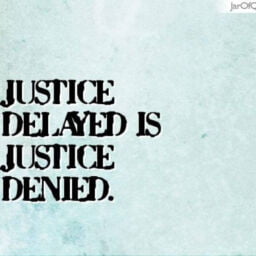Introduction
“Wherever the art of medicine is loved, there is also a love of Humanity.”
– Hippocrates
The field of Medical is considered one of the noblest professions among many. The profession of medicine and those practising it have always been venerated by society irrespective of many such factors on which the society usually gets diverted, differentiated and sometimes even deteriorated. Hence, for any human, who has been suffering from anything which threatens his existence or convenience, for him, a doctor is a God or might be something upper than God.
“To err is to human.” And the one who does not do any mistake is not a human. It is very obvious that any person whether he may be an exceptionally skilled being in any area or profession, or may have an advanced level of knowledge can also sometimes do mistakes. It has to be noted that the degree of mistakes varies in different situations and areas. If the mistakes are occurring in the field like medicine, then it becomes a matter of concern as even minor mistakes in this regard can make major injuries and also sometimes can cause the death of any human. But for understanding or before commencing our topic of medical negligence it is essential for us to first have a glance at the concept of ‘negligence’.
NEGLIGENCE
Negligence can be called the omission to do something which a reasonable man, guided by those ordinary considerations which ordinarily regulate human affairs, would do or the doing of something a reasonable and prudent man would not do.
The term negligence cannot always be associated with what we call absolute carelessness. For vivid augmentation, negligence demands a degree of certain care in situations or circumstances which are particular. Either it is labelled as a subjective careless state of mind or objectively careless conduct. The omission to do what has been obligated or mandated by the law would constitute the negligence on part of such a person doing this. If this factor’s result or answer is affirmative then, it is a negligent act[1].
ESSENTIALS OF NEGLIGENCE
- Duty of Care towards the Plaintiff
- Breach of Duty
- Damages or harm suffered by the plaintiff
Duty of care towards the plaintiff
This is the most basic essential among the three. In order to make any person liable for negligence, this has to be proved that there was a duty of care. The plaintiff has to prove that the defendant owed the duty of care towards him/her when he (plaintiff) has brought any action against the defendant. The onus is on the plaintiff to prove that the person against whom the action has been brought owed the plaintiff the duty of care.
Breach of duty
After the relation is proved, the plaintiff has to prove that there has been a breach of that duty. The breach of duty may be triggered either by not doing any act which in certain circumstances a reasonable and prudent man would have done or by doing such act which a prudent man would not have done.
E.g. Municipal Corporation of Delhi v. Subhagvanti
Damages or harms suffered by the Plaintiff:
The plaintiff after proving the breach of the duty has to prove that he (plaintiff) has suffered the damages or the particular act of the defendant caused harm to the plaintiff. In short, to initiate the proceedings of negligence against any person the entire onus is on the plaintiff to prove each element that actually constitutes the tort of negligence.
MEDICAL NEGLIGENCE
It has to be noted that when any patient approaches any doctor and hospital for treatment or for the cure of any disease he first investigates the reputation of the doctor and his hospital. He expects very basic things which a common and rational man expects that the doctor will cure him with all his special knowledge and skill and the second one is that the hospital and the doctors therein would not do any such act which would cause harm or damage to the patient.
Dr. Laxman Balkrishna Joshi v. Dr.Trimbark Babu Godbole,[2] the Supreme Court has laid down that when any patient arrives at any doctor, then the doctor owes towards his patient’s certain duties. They are as follows:
- duty of care regarding the undertaking of the case
- duty of care regarding the treatment which shall be provided
- duty of care during the course of administration of the treatment
Non-adherence or breach in the duties mentioned above may pave the way for the occurrence of negligence which will be called medical negligence as the abovementioned duties are the very basic duties to be followed by any doctor or surgeon. Medical negligence may get affirmed when any doctor does not act as a reasonable doctor would have acted. There have been many instances where doctors, after critical surgeries are said to have left their instruments inside the body of the patient. We may also refer to Jasbit Kaur v. the State of Punjab.
DOCTOR-PATIENT RELATIONSHIP
The doctor-patient relationship plays a dominant role when dealing with medical matters. Availability and accessibility to the surgeon or doctor treating the patient make the patient comfortable enough to express all his queries and feelings. Providing the patient with all the information about the disease and about the treatment plan will also make the patient confident, which would eventually develop the trust in the heart of the patient and then he expresses his feelings and queries more vividly to the doctor. It is seen that where the doctor-patient terms are not good, the patient tends to conceal any major information from the doctor and this gives rise to some consequences which might get proved hazardous for both parties.
Law regarding the doctor-patient relationship in the United States of America considers the relationship fiduciary which means that the physicians are supposed or are required to act only in the interest of the patient who has come up to him even though the personal interests of physicians perhaps get conflicted[3].
MEDICAL NEGLIGENCE AND THE CONSUMER PROTECTION ACT, 1986
In Indian Medical Association v. V. P Shanta,[4] the Supreme Court has brought the medical services under the ambit of this law. The concept of medical negligence was broadly analysed and discussed in this case where the court decided whether the medical practitioner can say to be rendering services under Section 2(1)(o) of the Consumer Protection Act, 1986. We will discuss the major points held in the abovementioned case.
- As the doctor-patient relationship is not a master-servant relationship, it would not be termed as the contract of personal service. Specifically, it was held that the medical services must be treated as the ‘services’ defined under section 2(1)(o) of CPA, 1986.
- It has to be noted that the medical services which are provided free of cost or any charge, cannot be included in the preview of section 2(1)(o).
- Unlike the immediately previous point, those medical practitioners, practising individually and if are providing the service free of cost would come under the jurisdiction of the abovementioned section.
- Those medical services which are rendered against the payment of consideration are under the scope of this section.
Definition of a ‘consumer’ under Section 2(1)(d) of CPA:
“Any person who purchases products for consideration that has been paid, or promised or partly or partly paid and partly promised, or under any system of deferred payment for final consumption is a consumer.”
The introduction of this act has proved to be a boon for those patients or for the family members of those patients who have faced the dilemma of medical negligence.
CONCLUSION
“A good physician treats the disease of the patient, but a great physician treats the patient with the disease” remarks the great Greek physician Hippocrates. It is highly inferential that the doctors must use their tools and instruments meticulously as no action can be taken on the manufacturers of such tools.
The matter of concern which can be spotted around this discussion is that the medical services which are free of cost do not get included under CPA, so this may be proving very detrimental for those patients who have taken services free of cost and have suffered the effects of negligence. Also, a large number of people have started expressing their lost faith in the medical field. This can also create trouble for both of the parties. We desperately need certain kinds of legislation for the dealing of these matters as it poses threat to one of the noblest Professions and the faith of the people believing this field to be something above God.
Author(s) Name: Ninad Senad (D.E.S Shri Navalmal Firodia Law College, Pune)
References:
[1] Municipal Corporation of Greater Bombay v. Laxman Iyer, 2003 (8) SCC 731
[2] AIR 1969 SC 128
[3] Rodwin M, editor. Medicine Money and Morals: Physician’s Conflict of Interest. New York, NY: Oxford University Press; 1993.
[4] 1996 AIR 550
















